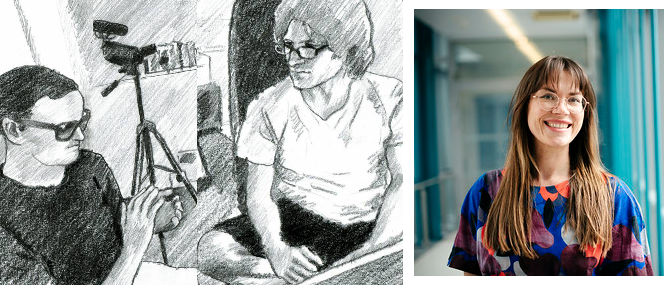
4th International Conference ‘Language in the Human-Machine Era’
‘Exploring the Dark Side of Future Language Technologies:
Linguistic (In)security, Ethics, and Privacy in the Human-Machine Era‘
2-3 September 2024
Maison des Langues, UCLouvain, Louvain-la-Neuve, Belgium
Eligible accepted participants will fully reimbursed, including travel, accommodation and expenses (see below).
Program
The 4th International Conference ‘Language in the Human-Machine Era’ (LITHME)
The LITHME Conference brings together researchers and experts from various areas of linguistics and language technology to prepare and to shape language and technology research in the human-machine era. Those with lots of technological expertise, and those with none but a keen interest in exploring its possible effects, are all absolutely welcome and encouraged to apply. LITHME Working groups cover subjects from computational linguistics to language ideology, language rights, language and law, and much else besides. We aim for targeted critical insights on new technologies.
This is a fully funded conference supported by the COST Association. Funding is available to anyone whose primary affiliation is to an organisation in COST Member countries and Near Neighbour Countries.* This can be any affiliation (including as a registered volunteer) for any kind of legal entity (e.g. university, business, charity, government body). There are no requirements for particular levels of qualification either. We are simply interested in your eligibility, and the quality of your submission. For eligible participants, there is no registration fee, and full reimbursement for all travel and accommodation, with an additional daily allowance for personal expenses.
Follow this link for detailed travel advice.
*Please note Russia has recently been removed from this list.
Plenary speakers
Philip Seargeant, Open University, UK
Author of The Future of Language: How Technology, Politics and Utopianism are Transforming the Way we Communicate

Maija Hirvonen, Tampere University, Finland
Principal Investigator, MUTABLE: Multimodal Translation with the Blind

Abstract submission
The deadline has now passed. The call below is left here for archiving purposes.
We invite submissions for our upcoming conference entitled “Exploring the Dark Side of Future Language Technologies” whose focus will be on the intricate dynamics surrounding linguistic (in)security, ethics, and privacy in the human-machine era.
As language technologies continue to advance rapidly, the concerns for linguistic (in)security, ethics and privacy are increasing. This conference aims to critically examine the darker facets of these advancements, exploring topics such as:
- vulnerabilities in future language technologies and their implications for linguistic security,
- ethical dilemmas surrounding the use of future language technologies, including issues of bias, discrimination, and manipulation,
- privacy challenges in the context of language data collection, storage, and exploitation by machines,
- societal impacts of unchecked future language technologies on marginalized communities and vulnerable populations,
- regulatory frameworks and governance mechanisms to address the above-mentioned concerns,
- (re)placing the human in the machine learning age,
- cybersecurity, trust and privacy issues within and around future language technology and/or linguistically-oriented technology (e.g., Large Language Models and Generative AI).
This theme is not pessimistic or polemical. We believe that shedding light on the dark side of technologies not only helps us understand and address their potential pitfalls, but also enables us to safeguard their affordances for the benefit and protection of human users. All this can help us better understand and address inherent risks and benefits.
We welcome submissions from researchers, practitioners, and policymakers across disciplines, including but not limited to sociolinguistics, computer science, interaction studies, cognitive science, sociology, human-computer interaction, law, ethics, psychology and communication studies.
Please submit your abstract by the deadline of 17:00 in your time zone, 8 June 2024. (Your time zone will be logged during submission.)
